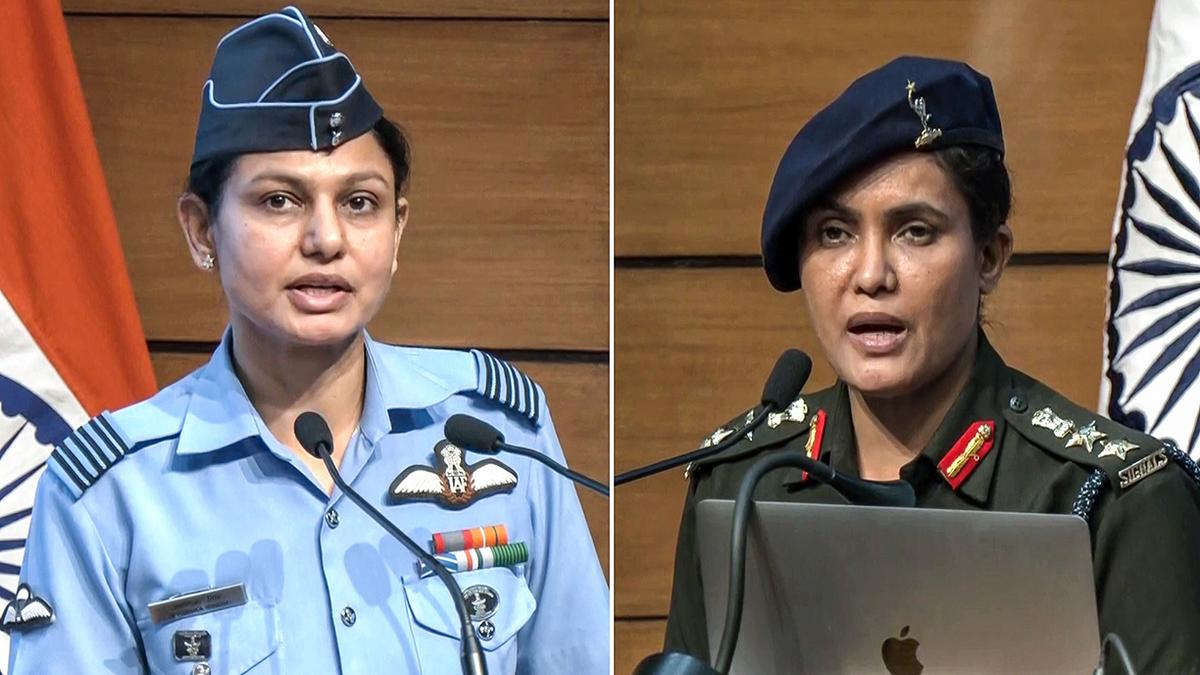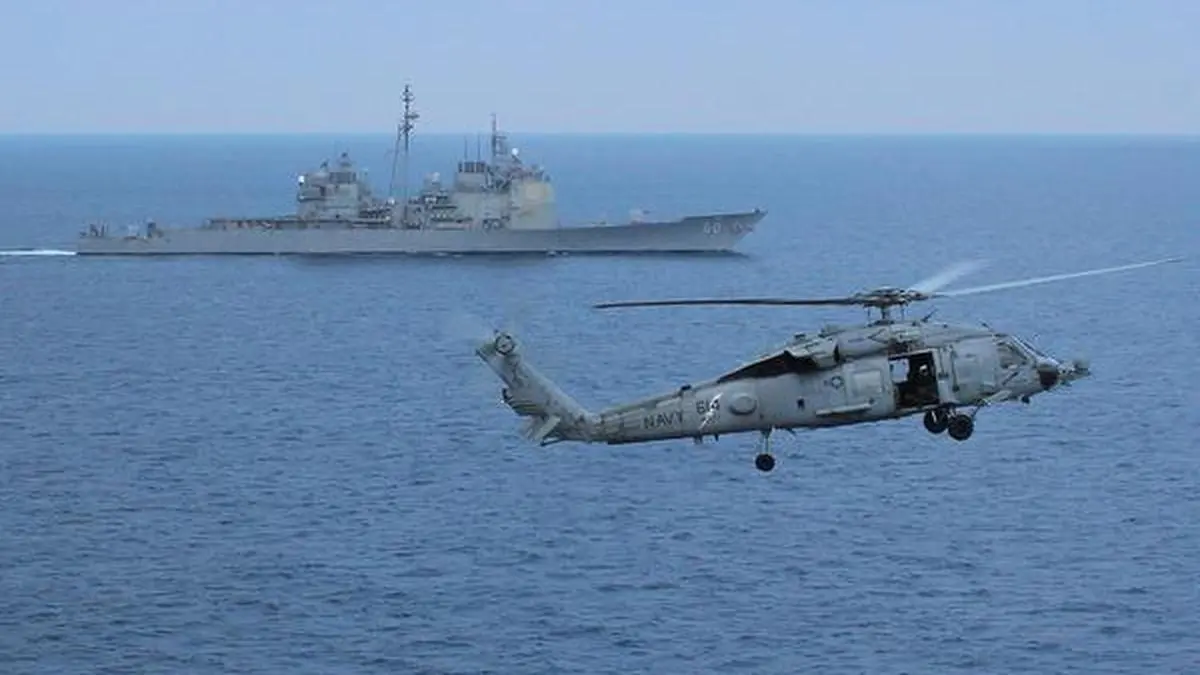[ad_1]

Wing Commander Vyomika Singh (L) and Colonel Sofiya Qureshi (R) address the media regarding ‘Operation Sindoor’ missile strike after Pahalgam terror attack, at National Media Centre in New Delhi on Wednesday
| Photo Credit:
ANI
India’s precision strikes on nine terror training camps in Pakistan and Pakistan Occupied Jammu and Kashmir in the early hours of Wednesday mark a fitting, measured and restrained response to Pakistan-sponsored terror in Baisaran valley, Pahalgam on April 22. In a briefing later on Wednesday, Foreign Secretary Vikram Misri, Col Sofiya Qureshi and Wing Commander Vyomika Singh explained with clarity and firmness of purpose the successes of ‘Operation Sindoor’ and the rationale for it. They underscored India’s “right to respond” to the savage killing of 27 innocents in the Valley last month, and to “deter and pre-empt” such acts. The nine camps were also targeted on the basis of intelligence that “further attacks against India were impending”.
The Foreign Secretary placed the seriousness of the ‘Pakistan threat’ in perspective. The killings in Pahalgam were aimed at harming tourism, growth and development in the Valley, “with the objective of promoting communal discord, both in Jammu and Kashmir and the rest of the Nation”. Pakistan has been perpetrating cross border terror for years, causing India catastrophic harm, be it the 26/11 (2008) carnage in Mumbai, or attacks on security forces and innocent citizens in Pathankot, Uri and Pahalgam. Post Pahalgam, Pakistan has not taken steps against terrorist infrastructure, but instead resorted to denials and allegations. Terror training camps run by Lashkar-e-Taiba, Jaish-e-Mohammad and Hizbul Mujahideen, among others, have flourished under its watch. The precision strikes on nine significant camps included those which were training centres for Ajmal Kasab and David Headley.
There are some notable aspects to India’s firm, strong and appropriate response. As Misri, Col Qureshi and Wing Commander Singh emphasised, military and civilian spots were spared in a strike that is perhaps comparable in scale to 1971. The choice of the two women officers to brief the media was a message in itself; terrorists may have left women wailing at Pahalgam but here were two smart, young women officers, oozing confidence and aggression in spelling out details of the attack, standing as symbols of a progressive India that negates everything that Pakistan stands for. In its messaging, the government has displayed remarkable maturity, holding out both a warning and window for a winding down of hostilities. It is to be hoped that Pakistan responds sensibly. The UN Security Council is reported to have posed hard questions to Pakistan over Pahalgam, whose backers in the global community have reduced in view of its documented role as a terror haven. The US and other major countries have rightly urged a de-escalation of tensions.
While exercising restraint and pushing Pakistan to come up with a terror-clean-up plan, India must sustain the global pressure on Pakistan through institutions such as the Financial Action Task Force. Faced with a ‘failed state’ and a rogue army that is accountable to none, India will need global support to make headway with Pakistan.
Published on May 7, 2025
[ad_2]
Source link


